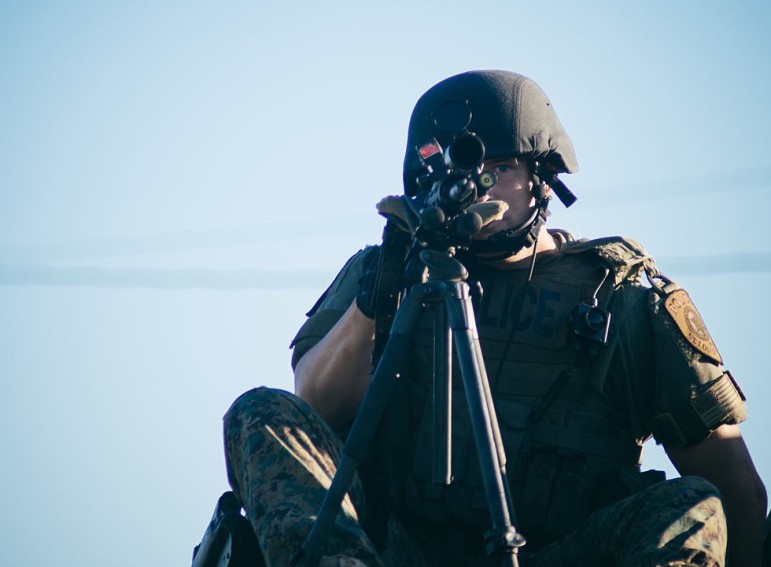
Jamille Boule
A police sharpshooter in Ferguson, Mo.
It was 8:50 p.m. and my heart was racing, as I waited for the decision on whether there would be a trial over Mike Brown’s murder. At 9:02 pm a decision still had not come from Prosecutor Robert McCulloch, but by 9:12 many wished he had never begun speaking.
Before he had actually announced the grand jury’s decision, many already knew what the answer was. Maybe he gave it away with his methodical yet ill-advised break down of the crime scene and the legal parameters police officers have used and abused around the world. Maybe it was a moment that was all too reminiscent of the Trayvon Martin decision or the death of Eric Garner. Maybe it’s the understanding that the law doesn’t work equally for everyone.
Either way, it was announced that Darren Wilson was a free man, and people around the country were left with varying emotions. Fear, anger, sorrow, and hatred seemed to highlight the myriad of feelings. But one emotion that seems to be sitting in the pits of some stomaches and the caverns of some minds is the feeling of being lost.
Everyone from police officers to protesters is currently asking themselves, “What now”? But this is a question black men start pondering at a very early age, and for many, it’s become that more prevalent today. When the tears dry, when the police smoke clears, when the protests end, and when the world tries to move on to the next major issue, what’s the next step for black men in America?
To many, a young black man being killed by a white man, with no legal ramifications is typical. Which is a very sad truth.
Historically, the American justice system has been less than fair to men of color, and it would seem not much has changed. There are still laws that some feel are inherently biased against men of color, and other laws that seem to be completely bent towards those with power. Either way, the black man loses. Issues like these have left many black men feeling as though there is no light at the end of the tunnel where they are walking while all the white men are in cars.
Whether you thought Officer Wilson was in the wrong or not, the evidence and debate on the incident were enough to find probable cause for a trial. This along with amount of evidence introduced and the time it took to make a decision has led many people familiar with the legal parameters of the case to say the decision was wrong or misguided.
Many people are in awe by the decision, but within the black community there was a sense of knowing how things would play out, because those are the cards we are often dealt. But how do we change this cycle? We’ve been radicals as well as pacifists and conformists. But nothing has seemed to work.
Many of us educate ourselves in a collegiate system that favors those who have a generational edge. We dress as conforming as we are asked to for the sake of our careers. We do what we are asked to have a better life in a country where we our equal entitlement to a fair justice system is often a dice roll.
Many fear us, hate us, take from us, kill us, and won’t or don’t defend us. Yet all black men want to know is where do we go from here? One more of our brothers silenced with no justice, what’s our next step towards true representation?







